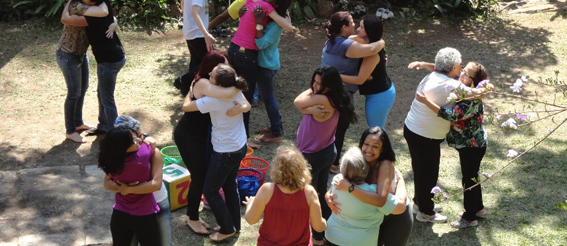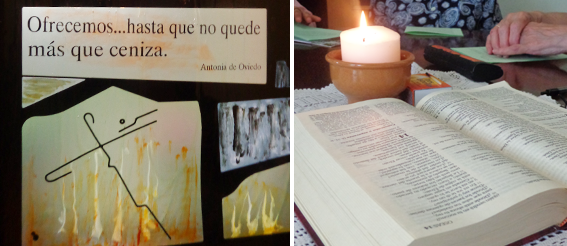
Get know us
Charisma and spirituality

Charisma
The meaning of the word charisma comes from the Greek kharisma: “divine gift, gift”. For the Oblate Sisters of the Most Holy Redeemer, this gift of the Spirit was received by our congregation through the founders, José María Benito Serra and Antonia María Of The Mercy.
The Oblate charism remains and is recreated to the extent that it continues to give away to many people around the world. Who receives it, discovers that their way of following Jesus is next to women immersed in contexts of prostitution, traveling along paths of redemption and liberation.
This charism sensitizes, empowers and is a driving force to guide all our potential in favor of this mission. The gift received leads to overcome social appearances and stigmas, to receive and respect the most vulnerable women in their dignity, where they discover the reflection of God. In the middle of adversity and conflict, it prevails the transformative power of understanding, love and hope.

Spirituality
The source of our spirituality is Jesus the Redeemer, compassionate and merciful, who focuses especially on the excluded. Love that distresses and surrenders as an expression of the tenderness of God, establishing relations of gratuitousness and freedom also with women.
We discover the specific features of Oblate spirituality based on the faith experience of our founders, which, updated along the congregational path, gives rise to a way of life that shapes the relationship and encounter with God, the personal spirit, life In community and social and political commitment, in the various continents and countries where the Oblate Family fulfills its mission.
The spirituality of incarnation leads us to place ourselves before reality, especially in approaching the situations of women in contexts of prostitution, as the sacred land where God dwells and challenges us. The compassionate, attentive and profound look of Jesus impels us to convert pain and indignation to injustice, in permanent and soliditarian surrender (oblation), affirmation of life and liberation (redemption) and to be “missionaries of mercy”.
 Being oblates shapes our way of being and being in the world. This identity, which covers the whole of our life, is built and nourished from the origins of the mission, the experience of God and fraternal life.
Being oblates shapes our way of being and being in the world. This identity, which covers the whole of our life, is built and nourished from the origins of the mission, the experience of God and fraternal life. 

 Being oblates shapes our way of being and being in the world. This identity, which covers the whole of our life, is built and nourished from the origins of the mission, the experience of God and fraternal life.
Being oblates shapes our way of being and being in the world. This identity, which covers the whole of our life, is built and nourished from the origins of the mission, the experience of God and fraternal life. 









